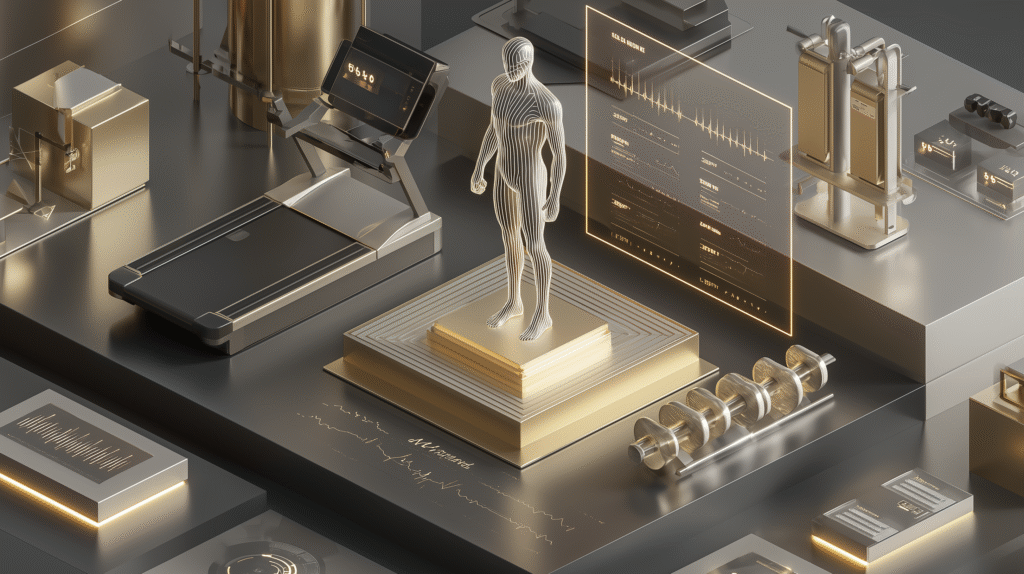In the era of technology evolution, artificial intelligence (AI) is reshaping various aspects of our lives, including how we maintain our health and fitness. AI fitness coaches are emerging as a groundbreaking tool, promising to revolutionize personal training by providing customized workout and nutrition plans with ease and efficiency. But the question remains: Can AI fitness coaches really replace human trainers?
The Rise of AI in Health and Fitness
AI has infiltrated the health and fitness industry with a promise to make personal training more accessible and personalized. From apps that monitor your progress to algorithms that suggest workouts based on your fitness level and goals, AI’s role is expanding rapidly. However, understanding the capabilities and limitations of AI fitness coaches is essential in determining whether they can truly stand in for human trainers.
What Are AI Fitness Coaches?
AI fitness coaches are sophisticated algorithms designed to provide fitness guidance. They analyze your fitness data, such as exercise history, health metrics, and personal goals, to offer tailored workout and nutrition advice. These virtual coaches are accessible through smartphones and wearable technology, making them a convenient option for those struggling to fit exercise into a busy schedule.
How Do AI Fitness Coaches Work?
AI fitness coaches use machine learning, a branch of AI that learns from and makes decisions based on data. By gathering data from your activities, these AI systems learn about your preferences, strengths, and weaknesses. Over time, they adjust your fitness plans to maximize effectiveness and efficiency, theoretically improving your health outcomes.
The Benefits of AI Fitness Coaches
AI fitness coaches offer several advantages over traditional personal training methods:
1. Accessibility: They are available 24/7, allowing users to exercise on their own schedule without coordinating with a trainer’s availability.
2. Cost-Effectiveness: AI trainers typically require a one-time payment or subscription, which can be significantly cheaper than hiring a personal trainer.
3. Personalization: With the ability to process vast amounts of data, AI can potentially offer more personalized advice than a human might be able to manage effectively.
4. Scalability: AI can serve multiple users at once, removing the limitation of one-on-one sessions that personal trainers face.
However, while these benefits are compelling, there are also significant limitations to consider.
Limitations of AI Fitness Coaches
Despite the advancements in AI technology, there are areas where human trainers still hold the upper hand:
1. Human Interaction and Motivation: AI cannot fully replicate the motivational support and encouragement that a personal connection with a human coach can offer.
2. Complex Decision-Making: While AI can provide suggestions based on data, it may not handle unexpected situations or complex health conditions as effectively as a human trainer.
3. Adaptability in Real-Time: Human trainers can make immediate adjustments during a workout session based on a client’s performance and feedback, a nuance that AI is currently unable to replicate perfectly.
Real-Life Applications and Success Stories
Several fitness platforms have successfully integrated AI to deliver impressive results. For instance, apps like Fitbit and MyFitnessPal use AI to track and analyze user data to provide actionable insights and personalized fitness recommendations.
Case Studies and Testimonials
Users of platforms integrating AI report improvements in their fitness levels, with many appreciating the convenience and customization that AI fitness coaches offer. These testimonials suggest that for many, AI can serve as an adequate substitute or a complementary tool to traditional training methods.
Can AI Really Replace Human Trainers?
While AI fitness coaches offer numerous benefits and are continually improving, they are not likely to fully replace human trainers soon. The personal touch, expertise, and real-time adaptability of human trainers are currently irreplaceable by AI. However, AI can serve as a powerful tool in enhancing the fitness journey, particularly for routine workouts and initial fitness assessments.
Conclusion
AI fitness coaches are transforming the fitness industry by making personal training more accessible and personalized. While they provide significant advantages in terms of accessibility, cost, and scalability, human trainers remain superior in areas requiring emotional intelligence, complex decision-making, and real-time adaptability. For now, the best approach might be a hybrid model, where AI enhances the efficiency and effectiveness of fitness regimes, while human trainers focus on providing motivation, accountability, and expert guidance.
As AI technology continues to evolve, the future might hold more integrated solutions where AI and human expertise are blended seamlessly to provide a comprehensive fitness coaching experience. Until then, whether an AI fitness coach can replace a human trainer depends largely on individual needs and preferences.

